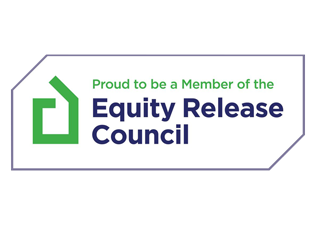-
Property website Zoopla analysed the initial asking prices of properties for sale
-
It compared these figures with the amount that the properties actually sold for
-
None of the towns that typically achieved full asking prices are in the South
Homeowners trying to sell their property at the moment for the price they had initially hoped for may feel that they’re fighting a losing battle. The uncertainty surrounding Brexit and concerns about the economy mean that many of Britain’s prospective buyers are holding off from making a move. But new figures published today suggests that those vendors who are realistic about the value of their home are succeeding in getting offers – as long as they shave an average of £8,000 off the initial asking price to secure a sale, according to new figures from property website Zoopla.
The average discount to a property’s initial asking price across England and Wales is 3.7%, but in some areas, buyers are getting 100% of what they hoped for, while in others they must cut more deeply to get under offer. A selection of Northern towns were all found to have buyers who typically paid the full price, while Welsh locations dominated the top ten areas for the biggest discount.
Those selling their home in Driffield, in East Yorkshire, Dronfield, in Derbyshire, and Salford, in Greater Manchester, all typically achieved the initial asking price, at £175k, £223k and £160k respectively.
Zoopla analysed the initial asking prices of properties for sale in England and Wales, and then compared them with sold prices from the Land Registry database. It found that the average discount on an initial asking price was 3.7%, the equivalent of £8,000 on the average £225,000 price of a home in England and Wales.
Locations where buyers got close to asking price stood in contrast to the places seeing the biggest gaps between the initial asking price and the actual sold prices. Mountain Ash, in South Wales, is the worst performing town in England and Wales, with properties achieving 91.5% of the initial asking price. It equates to an average discount of £6,500 on an average asking price in Mountain Ash of £75k. It is followed by Abertillery, also in Wales, where homes achieved 91.7% of the asking price, while homes in Bishop Auckland, in the North East, generated 91.8% of the initial listing price.
In London, the average home achieved 94.6% of the asking price with the London borough of Waltham performing the best, achieving 97.92% of the initial asking price. By contrast, homes in Camden performed the worst, selling at 91% of the initial asking price. The 9% discount in Camden equates to £75k based on the average property price in the borough being £835k.
In monetary terms, the biggest discount was in Kensington, where asking prices were typically discounted by £125k. It equates to 8.3%, based on an average property value of £1,395,000 in the borough.
Prospective buyers looking for a discount should consider whether how a property is priced in the first place. Those with relatively high initial asking prices to similar properties are the best target for a discount, while those that sellers have already priced keenly have less room for money off. Patrick Alvarado, director of Knightsbridge estate agency Nicolas Van Patrick, said that many London sellers have already lowered asking price expectations to get prospective buyers through the door. He said ‘Vendors realise that if you overprice your property you won’t even get a sniff from a buyer who will completely disregard your property on the basis that you are not a serious seller.’
Those selling homes must decide whether it is better to price low now and get under offer before Brexit, or hold out on the basis that a deal could boost the market. Laura Howard, of Zoopla, said ‘The ongoing uncertainty around what kind of Brexit is in store for the nation, could also be a catalyst for realistic pricing – in other words, a less certain future for the property market calls for prices that will be more certain to sell now. Sellers are perhaps more motivated to set a price for their property that will result in a more likely sale this side of Brexit, rather than wait to see what effect it could have on the housing market in the next six months or so.’
[Source: Mail Online Property, 3 September 2019]
Want to know more? Get in touch!







